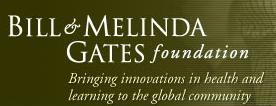Alzheimer's and open source medicine


As Gina Kolata notes at The New York Times, it's working in the area of Alzheimer's Disease.
In this case the National Institutes of Health acted as a broker among both public and private institutions, the idea being that resulting knowledge on biomarkers would be shared.
The NIH was working as a higher-order Eclipse Foundation, with companies sharing the expense of building a common core of knowledge all could then use.
The result of the NIH effort has been new tests for Alzheimer's, using PET scans and spinal fluid, as well as over 100 drug studies aimed at halting or preventing the disease.
The Michael J. Fox Foundation saw this success and is putting $40 million toward doing the same thing for Parkinson's. As with the Alzheimer's work, the Fox money is going into a search for biomarkers for the disease.
That's not all. When the Bill and Melinda Gates Foundation put $287 million into a search for AIDS vaccines in 2006, it was with this same open source proviso. Recipients would have to collaborate, sharing data, in order to get in on the action.
Canada backed off its support of an international AIDS effort this year in favor of a partnership with the Gates effort.
Open source developed in software as an outgrowth of the Internet, as people realized that collaboration could be done cheaply and could create projects no one company could fund on its own. That same idea has now come to medicine, it's being proven to work, and I predict it will soon sweep the sciences.
Open source is not just for software any more.